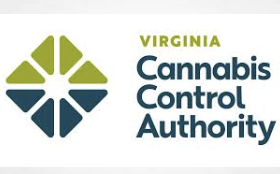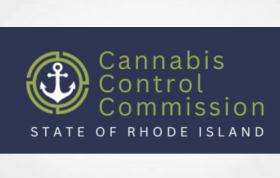On October 6, 2022, President Joe Biden issued a statement on marijuana policy reform, accompanied by a proclamation and decision to pardon individuals prosecuted for the simple possession of marijuana in violation of the Controlled Substances Act (“CSA”). President Biden’s announcement occurred just in time for the upcoming midterm elections and focused on three priorities:
- All individuals charged or convicted of prior Federal offenses for simple possession of marijuana in violation of a limited set of Federal and District of Columbia laws will be issued complete and unconditional pardons.
- State Governors are urged to mirror the Presidential pardons at the state level where permissible; and
- Finally, in a substantial shift in Federal marijuana policy, the President requested that the Secretary of Health and Human Services (“HHS”) and the Attorney General initiate an administrative process to review marijuana’s Scheduled 1 classification under Federal law and the CSA.
Here are our initial takeaways and predictions from the announcement.
First, while President Biden’s announcement is significant and marks the first step in decriminalizing marijuana, it has its limitations. For example, the pardons are limited and may not impact as many individuals as they could. Specifically, the pardons apply to only United States citizens and permanent residents who have been charged or convicted pursuant to 21 U.S.C. § 844 which makes it a crime for any person to knowingly or intentionally possess a controlled substance in violation of the law.1 Current estimates indicate that approximately 6,500 people were convicted of simple possession between 1992 and 2021, not including legal permanent residents.2
Second, the broader implications of the President’s call to action for state Governors to mirror the Federal pardons is forthcoming. However, many in the President’s own party have expressed support for the policy shift,3 while gubernatorial candidates are leveraging the opportunity to raise their support for the issue on the stump.4
Third, and perhaps the most significant takeaway is President Biden’s request to begin the administrative process of reclassifying marijuana from a Schedule 1 controlled substance to a lower scheduled substance. Schedule 1 substances are considered the most dangerous substances, having the “highest potential for abuse” and with “no currently accepted medical use in treatment in the United States”5 and include such drugs as heroin and LSD. The current designation of marijuana in the CSA is in direct conflict with the 37 states that permit medical use of cannabis products, and the 19 states that permit some form of recreational or non-medical use of the substance. As a result of this policy gap and internecine conflict between Federal and State governments, the state-legal cannabis industry has been plagued by a litany of issues including banking restrictions, oppressive taxation requirements, medical research prohibitions and contradictory criminal enforcement. Reclassifying marijuana would be the first step, albeit a very big step, towards removing barriers that have disproportionality afflicted the marijuana industry.
In addition to President Biden’s announcement, congressional leaders have called for the passage of the SAFE Banking Act when Congress reconvenes in November. The SAFE Banking Act would prohibit federal banking regulators from penalizing depository institutions for providing banking services to cannabis businesses. The measure passed the House with bipartisan backing in April 2021, but has been stalled in a Senate committee since. If and when marijuana is de-classified, it would remove the fear of federal prosecution and likely make banking more accessible. However, the declassification of marijuana is not a magic pill that will immediately cure the ailments impacting the industry. We anticipate there will be an increased compliance burden, which those in the marijuana industry will need to carefully navigate.
We will continue to monitor Federal marijuana reform efforts and will provide further updates as they develop.
Footnotes
1 21 U.S.C. § 844
2. Michael Shear, Zolan Kanno-Youngs, Biden Pardons Thousands Convicted of Marijuana Possession Under Federal Law, The New York Times online, October 6, 2022 at: https://www.nytimes.com/2022/10/06/us/politics/biden-marijuana-pardon.html
3. Azi Paybarah, Biden’s Pardons for Marijuana Possession Inject Issue into Midterms Final Stretch, The Washington Post Online, October 7, 2022, at: https://www.washingtonpost.com/politics/2022/10/07/biden-marijuana-midterm-elections/
4. Katlin Lewis, What Governors, Candidates Are Saying About Biden’s Marijuana Pardons, Newsweek online. Accessed October 6, 2022 at: https://www.newsweek.com/what-governors-candidates-are-saying-about-bidens-marijuana-pardons-1749730
5. 21 U.S.C. § 812(b)(1)
The content of this article is intended to provide a general guide to the subject matter. Specialist advice should be sought about your specific circumstances.
Source:



















